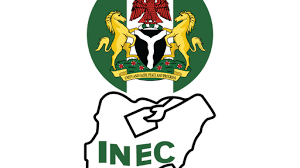Coalition of Civil Society Organisations on Tuesday in Abuja expressed worries over Clauses 50 and 88 in the Electoral Bill currently being amended at the National Assembly.https://scudnewsng.com
Clause 50 (2) of the Bill states that: “Voting at an election under this Bill shall be in accordance with the procedure determined by the Commission (INEC), which may include electronic voting, PROVIDED that the Commission shall not transmit results of elections by electronic means.’’
Convener of the Nigeria Civil Society Situation Room of the coalition, Ene Obi, told a news conference that providing for electronic voting, but prohibiting electronic transmission of results was restrictive.
“Anything short of electronic voting and electronic transmission of results will be unacceptable.’’
She noted that accredited observers had over the years identified the collation process as the weak link in Nigeria’s elections.
She said the process, often shrouded in human interference and other unforeseen occurrences, sometimes resulted in a lack of transparency, efficiency, and accountability, capable of undermining the credibility of the entire process.
“This is a challenge that can be tackled by electronic transmission of results if implemented properly.”
Obi observed also that INEC and civil society had for long clamoured for improvements to the electoral process, particularly, the use of technology in elections to improve efficiency and transparency.
“It was expected that in addition to providing requisite legal backing to the use of the Smart Card Reader, which was introduced in 2015, the re-enactment of the Electoral Act would provide the legal framework for INEC to deepen the use of technology in elections.
“The Commission on its part has been working to introduce new technologies into elections and has welcomed demonstrations of relevant technological devices from developers, to that end.”
Obi said the proposed provision of Clause 50 (2) would only undermine INEC’s power and discretion to make any far-reaching progress in the use of technology in elections.
She stressed that passing the Electoral Bill 2021 into law without addressing the salient issue of the use of technology would largely undermine gains so far recorded in Nigeria’s electoral process.
She added that the National Assembly should reflect on Clause 50(2) in the version of the draft bill agreed to by the joint Senate and House of Representatives Committees on INEC and Electoral Matters.
The version states that: “Voting at an election and transmission of result under this Bill shall be in accordance with the procedure determined by the Commission (INEC).”
Obi said that another issue of concern for civil society was the significant increase made to the limits for election expenses in Clause 88 of the draft bill.
The draft bill increased money a presidential candidate could spend on the election from N5 billion to N15 billion, while that of governorship candidates was increased from a N1billion to N5 billion.
For a senatorial election, a candidate could spend up to N1.5 billion, up from N100 million while a House of Representatives candidate could spend up to N500 million, up from N70 million.
Obi said the increased limits for election expenses would make the monitoring of campaign finances more difficult.
She added also that the dominance of money in Nigeria’s elections was detrimental to political evolution as finance constituted a major hindrance to the inclusion of marginalized groups like women, youths, and persons living with disabilities.
She tasked the National Assembly to review these provisions to allow for inclusivity in elections as the increased limits for election expenses were tantamount to shrinking the political space.
In his remarks, Co-Convener of the Nigeria Civil Society Situation Room, Mr James Ugochukwu, urged President Muhammadu Buhari not to assent to the Bill until the clauses are corrected.
Ugochukwu also expressed confidence that the National Assembly leadership was too professional to pass the Bill without addressing observations made.
He called on constituents to prevail on their lawmakers not to be part of the approval of the Bill without addressing observations made as it did not mean well for the masses in its present state.
The Electoral Act has been amended three times since its enactment in 2010.

